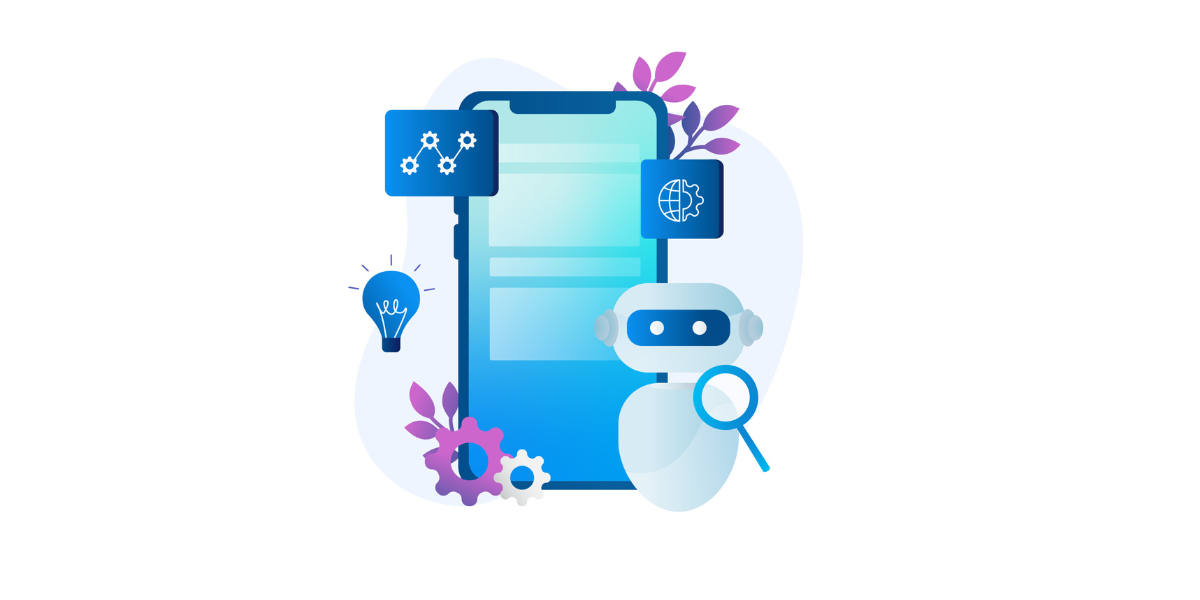
Introduction
By now, nearly everyone has heard of ChatGPT—the AI chatbot that has skyrocketed into mainstream popularity. For many, it was their first introduction to the power of artificial intelligence, showing just how far this technology has come. However, ChatGPT is just the tip of the iceberg. Today, AI applications are being used in numerous other unique and innovative ways across various industries, from healthcare to finance, education, and beyond. These applications go far beyond chatbots, offering transformative solutions that are shaping the future of how we work, learn, and interact. Read on to explore.
5 Unique Artificial Intelligence Applications Besides Chatbots
Besides chatbots and virtual assistants, there are several other peculiar artificial intelligence applications. Below is a list of some notable ones across diverse industries.
In Healthcare
AI applications have made considerable strides in the healthcare industry, particularly through:
1. Diagnostic AI
AI is extremely helpful in diagnosing by interpreting medical images like MRIs, X-rays, and CT scans with enhanced precision. Diagnostic AI tools can detect all abnormalities, from subtle growths and lesions to more grave conditions such as cancers, cardiovascular diseases, and neurological disorders. Besides, they continuously learn and adapt with each diagnosis, offering increasingly personalized and effective treatment recommendations.
Example
SepsisWatch, an AI-based alerting system developed by Duke University uses electronic health records (EHR) to identify patients who may likely develop sepsis infection 36 hours prior to the manifestation of actual symptoms.

2. Robotic Surgery Procedures
Over two decades after the world’s first transatlantic surgery conducted by surgeons in New York on a patient in France, AI-powered tele-surgery has become much more common. These AI applications provide real-time feedback, enhanced dexterity, and 3D visualization of the surgical field, reducing the margin of error and improving procedure accuracy.
Example
Robotic AI applications like the Da Vinci Surgical System use AI, robotic systems, and advanced equipment to perform procedures regardless of the distance. As of 2023, over 14 million procedures have been performed using this system.

3. Drug Discovery and Development
AI applications also accelerate drug discovery and development by scanning complex biological data to identify promising compounds and predict their interactions with target proteins. It also helps in optimizing clinical trials by modeling patient responses and minimizing side effects, significantly reducing the time and cost involved in traditional research methods.
Example
IBM Watson, a cloud-based AI application, is a cognitive solution that creates dynamic visualizations of interactions between various compounds and their targets, helping in finding more potent drugs.
In Retail and eCommerce
Some unique AI applications in the retail and eCommerce segment include:
1. Self Checkout Systems
AI-based self-checkout systems have automated the majority of shopping and purchasing experiences by allowing customers to scan and pay for items without the need for cashier assistance. These AI applications use computer vision and ML algorithms to recognize products, map them with accurate prices, process payments, and detect potential theft. It is a growing market, expected to grow from $5.64 billion in the present year to $18.01 billion by 2032!
Example
For example, Amazon Go stores use AI-based Just Walk Out technology to track what items customers pick up, automatically charging them when they leave the store.

2. CRO Testing
AI applications can track and analyze user behavior in real-time and identify the most interactive and appealing website elements. These tools can also run multiple A/B tests, predicting which design changes, content layouts, or call-to-actions work the best with specific audiences, reducing the time spent manually testing different content formats.
Example
Optimizely, an AI-powered Digital Experience Platform (DXP), helps businesses conduct multivariate testing and automatically suggests the best-performing variations of website elements such as design, product layout, and call-to-action buttons.

3. Recommendations Systems
This is probably the most widely used AI application in the retail and eCommerce industry. By processing data on purchase history, browsing habits, and even real-time activity, AI tools can provide targeted recommendations, encouraging customers to explore new products they may like.
Example
A prominent example is Amazon’s recommendation engine, which uses ML algorithms to examine customer purchase history, browsing behavior, and real-time activity to suggest relevant products.
In Finance and Banking
By 2025, AI in finance will reach $26.67 billion. Here are some reasons why:
1. Advisory Services
Robotic AI applications are increasingly being used by financial advisors to offer better, more personalized advice. These systems study clients’ data, such as income, expenses, risk tolerance, and investment preferences, to create detailed financial plans. If required, they can also be put to long-term use for handling investment portfolios in real-time based on market conditions, providing more dynamic financial management with minimal human intervention.
Example
Wealthfront is a famous robotic advisor that automates portfolio management. It uses AI algorithms to monitor and rebalance portfolios when necessary, ensuring optimal asset allocation. It can also minimize tax liabilities by automatically selling losing investments and replacing them with similar alternatives.

2. Trading
AI applications enhance trading by analyzing financial data in real time to spot patterns and execute trading more efficiently than humans. They can react to market fluctuations instantly by predicting stock movements and minimizing risks to enable traders to make better data-driven decisions at optimal times.
Example
Wall Street’s trading desks rely heavily on AI systems for high-frequency trading. These AI tools can quickly adapt to market changes that traders might miss. In fact, more than 40% of the new hires at Wall Street firms are in AI roles, showing just how crucial this tech has become for staying ahead in the game.
3. Loan Risk Assessment
Another application of AI in finance is to assess loan risks. By scanning and flagging discrepancies in financial data, such as credit scores and histories, alongside alternative sources like utility payments. Once approved, AI applications also simplify the disbursal process through automation, reducing the need for human intervention.
Example
Nubank is known for its powerful AI-based credit scoring system that determines the creditworthiness of a candidate. Based on this score, it tailors the loan terms and provides a risk assessment.

In Travel & Tourism
Today, almost every travel business uses at least one AI application or tool to improve customer experiences and simplify service provision. Despite this, only 13% of all travel & tourism companies have the necessary AI maturity to make the most out of this technology.
1. Robotic Customer Service
Robotic AI applications are transforming how hospitality businesses offer 24/7 support. These robots, equipped with natural language processing (NLP) capabilities, engage in real-time conversations to answer questions, assist with bookings, and enhance the check-in process.
Example
Hilton’s “Connie,” an AI-powered concierge robot, interacts with guests to provide local recommendations, hotel information, and booking assistance, improving the guest experience.

2. Flight and Hotel Forecasting
Many AI applications can analyze historical booking data, current market trends, and external factors like weather and events to forecast flight and hotel bookings and their prices. This information helps airlines and hospitality businesses to strategize for optimal revenues. At the same time, it helps customers plan their travel based on the forecasts.
Example
The Hopper app uses AI to predict flight and hotel prices with up to 95% accuracy, helping travelers decide when to book for the best deals, saving time and money.
3. Smart Baggage Handling
Smart baggage handling is a relatively new application of AI, with its market expected to touch $10 million by the next year (2025). These systems have brought much-needed efficiency and transparency through real-time tracking technology to sort and route luggage accurately. With these systems, travelers can also receive real-time updates on their luggage’s location and even get notified when their baggage arrives on the belt, improving overall travel experiences.
Example
Delta Airlines’ AI-powered baggage tracking provides real-time updates through its mobile app, allowing passengers to monitor their luggage status throughout the journey. This has significantly reduced baggage mishandling complaints for the airline.
![]()
In Education and eLearning
More than 50% of men and women believe that AI’s utilization in education will have a good impact on their children, particularly in the following areas:
1. Personalized Learning
AI is very useful in creating personalized learning paths based on the learner’s abilities. These systems monitor individual progress, adapting content to address specific weaknesses or accelerate learning in areas of strength. In fact, studies show that personalized education plans can boost student performance by as much as 30%.
Example
Walden collaborated with Google Cloud to create an AI-powered online tutor, now called Julian, designed to provide personalized learning and student support.
2. Automated Grading and Assessment
Educational AI applications are making grading faster and more consistent, especially in large-scale institutions. For multiple-choice questions, they can instantly evaluate responses based on pre-defined answer keys. However, when it comes to more complex assessments like essays, AI applications use NLP to examine sentence structure, grammar, coherence, and content relevance. By comparing written responses to a vast database of similar texts, these systems can assess not only factual correctness but also the quality of arguments, style, and tone.
Ironically, AI systems can also detect student submissions generated by other AI tools like ChatGPT. While AI simplifies assessment for educators, it also challenges its own utility by identifying assignments completed with the help of similar AI systems.
Example
The University of Michigan developed an AI technology called M-Write, designed to help faculty assess student writing at scale. It aims to identify areas where students struggle and provide targeted feedback to improve their writing. As a part of this project, a senior lecturer— Brenda Gunderson engineered certain writing prompts to train the system to better evaluate students’ submissions.
3. Course Authoring
AI applications can assist in authoring course content by analyzing similar courses, identifying key learning objectives, and automating content generation, which significantly reduces development time. Additionally, AI can review existing educational data and suggest improvements tailored to specific curricula. Another notable application in this area is the creation of tests and assignments, where AI can generate relevant assessments aligned with the course material.
Example
Knewton AI is a well-known education platform that creates personalized lessons that match the learner’s needs.
Planning to Implement AI Applications in your Business?
AI has countless applications, from basic automation tasks to advanced robotic surgeries, and its potential extends far beyond those mentioned earlier. No matter the industry, AI offers valuable solutions, making it an essential technology in today’s digital age. If your business has a unique requirement that hasn’t yet been addressed by AI, you can collaborate with expert AI developers or seek professional AI development services to create a tailored solution. With the technology still evolving, the possibilities of future AI implementations seem countless.







